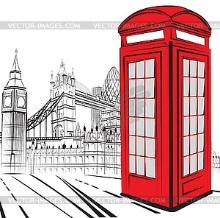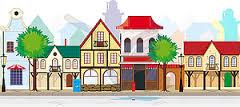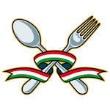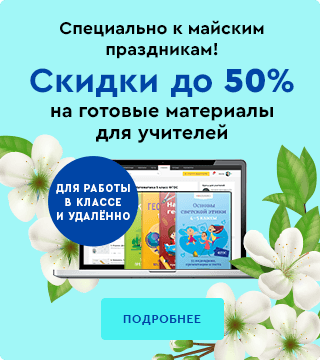ДЕПАРТАМЕНТ ОБРАЗОВАНИЯ И НАУКИ ПРИМОРСКОГО КРАЯ
краевое государственное автономное
профессиональное образовательное учреждение
«Колледж технологии и сервиса»
Тексты на английском языке
для самостоятельного чтения
с заданиями
Преподаватель иностранного языка
Севастьянова А. А.
COMPREHENSION READING
Владивосток 2014
Аннотация
Учебное пособие предназначено для студентов 1 курса СПО колледжа технологии и сервиса в качестве материала для самостоятельной работы, являясь приложением к базовым учебникам.
Цель пособия - помочь студентам овладеть лексико-грамматическим материалом учебника. Предлагаемая система упражнений нацелена на расширение словарного запаса студентов по изучаемым темам, а также на закрепление и активизацию выделенных лексических единиц и грамматических форм.
Тексты и задания к ним ориентированы на формирование академических навыков чтения, а также навыков говорения.
Задания построены таким образом, чтобы способствовать формированию и развитию у студентов критического мышления.
Тексты подобраны разной степени сложности для студентов разного уровня подготовки. Степень сложности оценивается от 1 до 5 (1 - «очень легкий», 5 - «очень сложный»).
Введение
Данное учебно-методическое пособие представляет собой сборник текстов с заданиями для лиц, имеющих базовый уровень знаний в рамках средней школы, и предназначено для организации образовательного процесса, основанного на принципе самостоятельного обучения студента. Его можно рассматривать как своеобразный «самоучитель» для тех, кто хочет научиться читать по-английски с глубоким пониманием прочитанного.
Тексты, включенные в данное пособие, сопровождаются системой упражнений с заданиями, целью которых является снятие трудностей лексического и грамматического характера.
При условии внимательного анализа и точного следования образцам и инструкциям студенты могут быть уверены в успехе, более того, есть возможность осуществлять самоконтроль. Тематика текстов отвечает требованиям программы изучения английского языка в техническом вузе.
Цель сборника – тренировка и закрепление изученного языкового материала и развитие навыка чтение без словаря английских текстов с пониманием общего содержания и последующим изложением его на русском языке.
Задачи:
- формирование
Методические рекомендации.
Эффективность работы по данному пособию может быть обеспечена сочетанием самостоятельной работы студента с периодическим контролем со стороны преподавателя. 1. В начале студент читает текст, стараясь понять его содержание в общих чертах.
2. Затем следует переходить к разделу Упражнения.
В ходе выполнения упражнений студенту, возможно, придется обратиться к грамматическому справочнику и повторить нужный для данного текста раздел, а также поработать со словарем.
Цель этих заданий – помочь усвоить языковой материал, необходимый для понимания содержания данного текста.
Следует отметить, что задания для снятия грамматических трудностей включают явления, наиболее характерные для письменных форм коммуникации (страдательный залог, инфинитивные и причастные конструкции, цепочки существительных и т.д.).
Задания в разделе Упражнения предусматривают неоднократное обращение студента к тексту, что способствует лучшему пониманию прочитанного. Для повышения эффективности работы все упражнения следует выполнять письменно в рабочей тетради.
Цель этого сборника – тренировка и закрепление изученного языкового материала и развитие навыка чтение без словоря научно-популярных текстов с пониманием общего содержания и последующим изложением его на руском языке.
London

Text 1
Степень сложности - 1
London is the capital of Great Britain. London is a very old town. London is two thousand years old. Many years ago London was a small town on the Thames. There were a lot of villages round it. After many years London and three hundred villages grew into a very large city. Some of the names of those villages are the names of the streets in modern London-Kensington, Westminster.
Now London is a beautiful city with large squares and parks. The city of London is the business centre. East End includes the poor districts. West of London is the West End where rich people live.
Trafalgar Square is in the centre of the West End of London. In the centre of Trafalgar Square there is the column made of granite. On the top of the column there is a 17-feet-tall statue of Admiral Nelson who defeated the French at the Battle of Trafalgar in 1809. The total high of the monument is 184 feet (44 meters).On the pedestal is a bronze relief cast from a captured French cannon, representing Nelson’s victory.
On the North side of Trafalgar Square is the National Gallery.
The National Gallery has one of the finest collections of pictures in the world.
Trafalgar Square is one of the busiest place in London, where people go to and from the work, it is hard to cross the street.
1. Ответьте на вопросы по тексту.
What is the capital of Great Britain ?
How many years is London?
What includes the poor districts?
Where do rich people live?
Where is the Admiral Nelson column?
2. Продолжите предложение.
On the top of the column …
London is two…
On the north side…
The total high…
There were…
3. Какие предложения соответствуют содержанию текста “+”, а какие не соответствуют “-”
London is a new town.
London is on the Thames.
The West End of London is a place where rich people live.
In London there aren’t a lot of squares and parks.
4. Найдите в тексте
Национальная галерея имеет одну из прекраснейших коллекций в мире.
Трефальгарская площадь находится в центре Вест Енда в Лондоне.
Сейчас Лондон –один из красивейших городов с большими площадями и парками .
Спустя много лет Лондон и три сотни деревень превратились в один большой город.
Некоторые из этих деревень стали названиями в современном Лондоне.
5. Вспомните и напишите 7 стран и их столицы.
In a Small Town

Text 2
Степень сложности - 2
Toscanini was a great musician. He lived in America. One day he came to a very little town. He was walking along the street when he saw a piece of paper in one of the windows. He read:
MRS.SMITH.MUSIC LESSONS.
TWO DOLLARS A LESSON.
Then Toscanini heard the music. Somebody was playing Tchaikovsky.
“Mrs. Smith is playing,” he thought, “she isn’t a very good musician. She doesn’t play Tchaikovsky well. I must show her how to play it.”
He went up to the door of the house and rang. The music stopped and soon a woman opened the door.
“Are you Mrs. Smith?” asked Toscanini. “My name is Toscanini and I want to show you how to play Tchaikovsky.”
Mrs. Smith was very glad to meet the great musician. She asked him to come in. Toscanini played Tchaikovsky for her and went away.
A year later Toscanini visited the same town again. When he went up to the house where he had played Tchaikovsky the year before he again saw a piece of paper. Now it read.
MRS.SMITH. (TOSCANINI’S PUPIL)
MUSIC LESSONS.
FOUR DOLLARS A LESSON.
1. Put “+” if the sentence is right and “-“if it is wrong.
Toscanini came to a very little town.
He liked how Mrs. Smith was playing.
He wanted to play the piano for her.
Tchaikovsky visited Mrs. Smith one day.
Mrs. Smith was a teacher of music.
2. Write the sentences in the right order.
Mrs. Smith was very glad to meet the great musician.
He lived in America.
The music stopped and soon a woman opened the door.
The music stopped and soon a woman opened the door.
“Mrs. Smith is playing,” he thought, “she isn’t a very good musician.
3. Answer the questions.
Where did Toscanini live?
Toscanini was a great musician, wasn’t he?
Did he want to show Mrs. Smith how to play?
What did he see in one of the window?
Did he think that Mrs. Smith was playing well?
4. Write down the ending of the sentence.
One day he came…
I must show her…
The music stopped and soon…
Toscanini played Tchaikovsky for …
Four dollars…
5. Make up 5 questions to the text.
Italian forks
Text 3
Степень сложности - 3
In 1608 an Englishman whose name was Thomas Coryate visited Italy. He liked the country and noted down every interesting thing he found. But there was one thing which he found more interesting than the others. In his diary Thomas wrote, “When the Italians eat meat, they use small forks. They don’t eat with hands because, as they say , do not always have clean hands”.
Before leaving for England, Thomas Coryate bought a few forks.
At home Thomas gave a dinner party to show the invention to his friends. When the servant brought the steak, he took out a fork and began to eat like they did in Italy.
Everybody looked at him in surprise. When he told his friends what it was, they all wanted to take a good look at the strange thing. All his friends said that the Italians were very strange people because the fork was very inconvenient.
Thomas Coryate tried to prove the opposite. He said it was not nice to eat with one’s fingers because they were not always clean.
Everybody got angry at that . Did Mr. Coryate think that people inEngland always had dirty hands? And weren’t the ten fingers they had enough for them?
Thomas Coryate wanted to show that it was very easy to use the fork. But the first piece of meat he took with the fork fell to the floor. His friends began to laugh and he had to take the fork away.
Only fifty years later people in England began to use forks.
1. Translate the following sentences into Russian:
In 1608 an Englishman whose name was Thomas Coryate visited Italy.
But there was one thing which he found more interesting than the others.
He said it was not nice to eat with one’s fingers because they were not always clean.
But the first piece of meat he took with the fork fell to the floor.
2. Answer the questions:
Why did the Italians eat with the forks?
What did he give at home to show the invention of the Italians?
Why did his friends begin to laugh?
When did people in England begin to use forks?
3. Correct according to the contents of the text :
They eat with the hands because, as they say, do not always have clean hands.
Everybody got happy at that.
Only seventy years later people in England began to use forks.
When the servant brought the steak, he took out a knife and began to eat like they did in Italy.
4. Put 5 questions to the text.
THE STORY OF MY TROUBLES

Text 4
Уровень сложности - 4
From my childhood I was an easily taught and obedient boy. My kindness was so noticeable that my friends made fun of me. I was especially fond of animals and had a great number of pets. With these I spent most of my time, and never was so happy as when feeding and playing with them. My character did not change much when I grew up.
I married early, and was happy to find in my wife a character very much like my own. Seeing my love for pets she never lost a chance of getting the most pleasant animals. We had birds, gold-fish, a fine dog, rabbits, a small monkey, and a cat.
This cat was a remarkably large and beautiful animal, quite black and surprisingly clever. In speaking of his cleverness, my wife, who was a superstitious woman, often mentioned the old popular belief, which considered all black cats to be in disguise.
Pluto- this was the cat’s name-was my favourite pet and playmate. I alone fed him, and he followed me everywhere about the house. It was even with difficulty that I could prevent him following me through the streets.
Our friendship lasted for several years, during which my character (I blush to confess it) had changed for the worse. I became day by day more moody and irritable. It often happened that I hurt the feelings of others; I suffered myself as I was rude to my wife. At last I even hit her.
My pets, of course, could feel the change in my character. In fact, I began to treat them cruelly. As for Pluto, I held back from cruelty as I did treat cruelly the rabbits, the monkey, or even the dog when they came in my way. But my illness took hold of me- for what other illness is like alcohol!- and at last even Pluto ,who was now becoming old, even Pluto began to feel the effects of my temper.
1. Answer the questions:
What kind of pets do they have?
What was the cat’s name?
What illness had the author?
Was he a kind man?
How long did their friendship last?
2. Ask questions.
Yes/No
Who
Where
or
“tag” question
3. Translate:
I married early, and was happy to find in my wife a character very much like my own.
Our friendship lasted for several years, during which my character (I blush to confess it) had changed for the worse.
In speaking of his cleverness, my wife, who was a superstitious woman, often mentioned the old popular belief, which considered all black cats to be in disguise.
4. Name antonyms:
Happy, beautiful, kind, black, begin.
5. Write about any trouble in your life. (5-7 sentences)
LANGUAGES OF THE WORLD
Text 5
Уровень сложности - 5
1. Nobody knows what the first language was. But scientists feel sure that nobody speaks it today because all languages change and keep on changing as long as people use them. One language may change in different ways in different places and grow into several languages.
2. If we could meet the people who spoke English five hundred years ago, we probably couldn′t understand much what they said.
3. English itself is a mixture of several languages. Scientists believe that these languages and many others all grew out of the same language which they call Indo-European. Nobody speaks it now. But some of its descendants are Latin, German, English, French, Greek, Russian and many of the different languages spoken in India.
4. Britain and America were once described as nations divided by a common language. Just what is difference between the English spoken in Britain and America?
5. The first English settlers to reach America arrived in Virginia in 1607 and in Massachusetts in 1620. They all spoke English of the early seventeenth century – the language of Shakespeare and Milton. Most of them came originally from the south and south-east of England. Although some of them had spent some years of exile in Holland they spoke with the accents of the southern part of their home country. To a large extent they kept that form of speech, but they soon learned to give old words new uses. They also took words from the local Indian languages for plants and animals that were new to them.
6. Until the Declaration of Independence in 1776 over two-thirds of the settlers in what later became the U.S. came from England. After that date many other people came to make a new life for themselves in the New World. These included Irish, French, Germans, Dutch, Italians, Slavs, and Scandinavians. All these people gave new words to the language of North America. The Negroes who had been taken from Africa as slaves to work on the rice and cotton plantations added words and structures from their own native languages. Some people today think that the very American expression O.K. comes from a similar expression which was brought to America by the Negroes.
7. All these people contributed in various ways to the language which was to become American English. Most civilizations and cultures – in their writings, traditions, folk stories – have traces of the old language.
1. Find antonyms:
different, last, leave, nobody, north, small, new, give, dependence, few, exclude, therefore.
2. Match Russian and English equivalents.
| А | В |
| because | в большой степени |
| that | пока |
| as long as | так как |
| as well as | хотя |
| some of | так же как, а также |
| once | между |
| as | некоторые из |
| between | когда-то |
| although | как |
| to a large extent | что |
3. Translate these sentences from the text.
1. Britain and America were once described as nations divided by a common language.
2. The Negroes who had been taken from Africa as slaves added words and structures from their own native languages.
3. Some people think that the very expression O.K. comes from a similar expression which was brought to America by the Negroes.
4. Answer the questions from the text.
1. Do people in Britain and America speak the same language?
2. What words did the first English settlers take from local Indian languages?
3. What peoples gave new words to the language of North America after 1776?
4. What is English now?

5.Write a translation of the abstract number 4.
Заключение
Список литературы





































